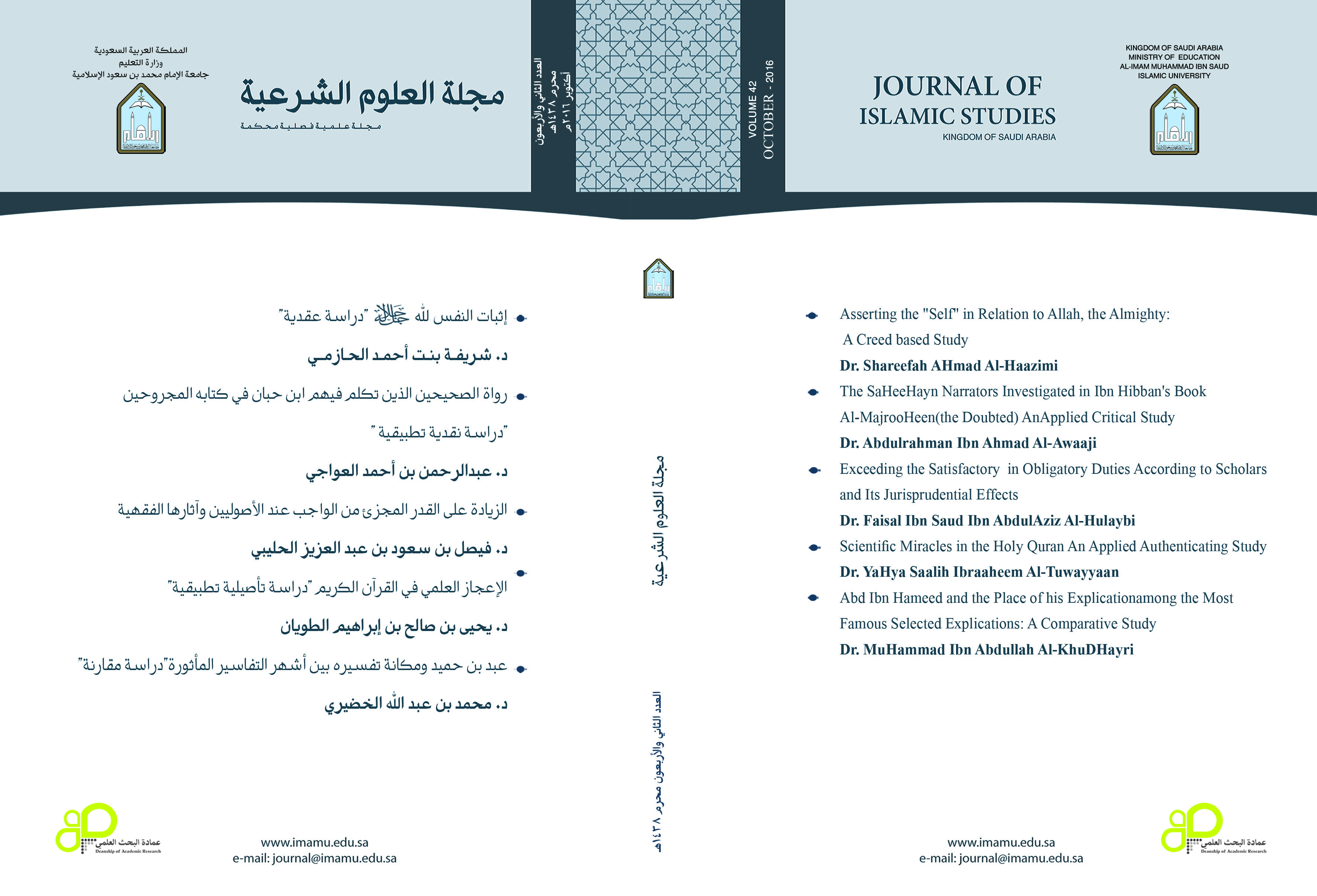Exceeding the Satisfactory in Obligatory Duties According to Scholars and Its Jurisprudential Effects
Abstract
This topic is of great importance because it is related to two Sharia judgements: The obligatory and there commended, also because of its secondary effects which are related to the pillars of Islam. Contradiction in foundation between jurisprudents and differences in correcting what has been said about secondary issues has added to the importance of allocating independent researching this subject, and according to the researcher's opinion, reaching the right conclusion.
Obligatory, as estimated and as specified and not specified according to Sharia, is divided into two sections: specified obligatory, which is estimated with a certain amount, and unspecified obligatory; which is not estimated with a certain amount from Sharia. The excess in the obligatory means the excess in at least what is called obligatory which is not estimated with a certain amount.
Scholars differed in their judgement about this excess: is it obligatory or recommended? There are four opinions on the subject. First, it is recommended. Second, it is obligatory. Third, it depends on certain conditions: if the excess is limited to certain parts then it is not obligatory, otherwise all is obligatory. Fourth, if the excess is included in the semantic descriptor of the quranic text, then it is obligatory, otherwise it is voluntary. Each has its legitimate evidence. The researcher tends on the whole to say that it is recommended, and states his reasons in the content of this research article.
Scholars also differed about whether this is a verbal or an essential dispute, and the proper answer is that it is essential and leads to obligatory duties in jurisprudence. I have mentioned ten of these duties.
The difference in correcting narrations originates from the dispute whether the excess is taken into consideration or not; and whether it covers minimal semantic spread of the name or the entirety of it. Those who hold the first position say that excess is recommended; while the other position sees that it is obligatory.




